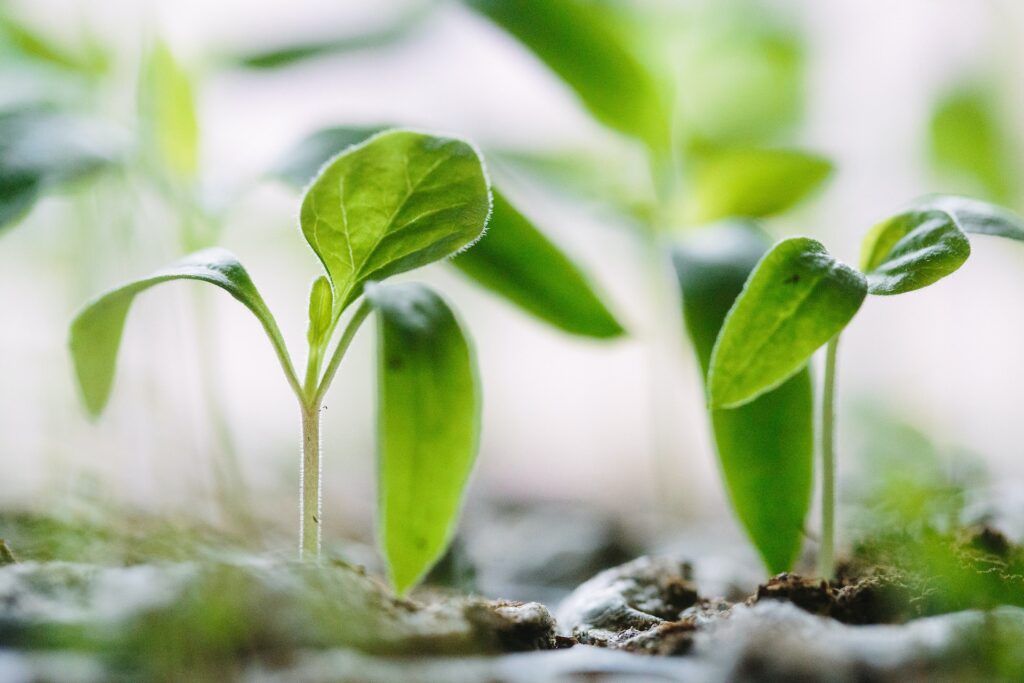The Overland Park Convention Center has partnered with Pete’s Garden, a food recovery organization that takes surplus prepared foods from local caterers, restaurants, and food service operations, and repackages and redirects the food as healthy take-home meals for families who need assistance in the greater Kansas City area.
eco friendly event venue
Our Sustainability Program
Ensuring a Greener Impact
Creating a more eco-friendly event venue at the Overland Park Convention Center is one way we make a positive impact on our community. Our leadership team worked with local environmental organizations to create goals focused on responsible waste management, green purchasing, energy efficiency and resource conservation to improve our sustainability efforts for the long term.
This collaboration identified opportunities for more sustainable operations across all departments. Overland Park Convention Center is committed to enhancing green practices in partnership with city officials, corporate leaderships, clients, and community partners.

Did You Know?
According to the U.S. Department of Agriculture, food waste is estimated to be between 30 and 40% of the entire food supply.
This number is staggering when you consider the amount of food not going to those who need it and how much that contributes to waste in other areas like processing, preparation, transportation, and more. Our sustainability strategy and initiatives at Overland Park Convention Center are mainly focused on tackling the issues of food waste and other forms of waste.
Our Sustainability Initiatives
Waste Management
OPCC upgraded all back-of-house and administrative trash and recycle areas with color-identified containers to expand our recycling efforts. We have recycling containers for glass, compost, paper, plastics, aluminum, waste, and batteries. All of our departments also practice e-recycling, and our culinary team continues to donate unserved prepared food and reclaim and recycle fryer oil, further reducing the environmental impact of our eco friendly event venue.
One of the largest issues in the hospitality industry is food waste. The Overland Park Convention Center is enrolled in the Food Residual Environmental Diversion Program (FRED). The goal of FRED is to reduce the amount of food waste going into local landfills and to recycle valuable organic resources.
This program provides valuable tools for our food composting efforts, such as waste audits, training, and education around venue-specific needs. We ensure food waste is recovered and recycled efficiently; food waste is picked up as needed and taken to a recycling center for composting.
- Food Scraps
- Meat, Poultry, Fish
- Shellfish and Bones
- Egg and Dairy Products
- Table Scraps & Plate Scrapings
- Fruits and Vegetables
- Bread, Dough, Pasta, Grains
Along with food items, we take part in the FRED program compost collection. This part of the program takes the following items:
- Coffee Grounds, Filters, and Tea Bags
- Food Soiled Paper
- Kitchen Paper Towels
- Uncoated Paper Take-Out Containers
- Pizza Delivery Boxes
- Paper Napkins
- Plant and wood scraps
- …and more!
Green Purchasing
Our Food & Beverage department prioritizes purchasing locally grown and baked products. We also offer vegetarian meal selections, as this type of food consumes less land base and less energy for production.
To ease the waste of one-use dinnerware, we purchase compostable dinnerware (plates, bowls, and cutlery) and recycled cups and napkins for disposable items.
Our staff uses green cleaning methods and eco-friendly products. We designed these procedures to preserve human health and environmental quality.
One of the most common eco-friendly cleaning ingredients is Aqueous Ozone. This is an EPA-certified and FDA-approved, 100% natural cleaner made of oxygen atoms, oxygen molecules, and water molecules. The combination creates a 100% sustainable and safe cleaning agent that naturally breaks down dirt, grease, and other contaminants as effectively as toxic cleaning products.
Our paper towels are USDA-certified biobased paper towels. They contain 40% or more post-consumer recycled fiber to meet EPA Comprehensive Procurement guidelines.
They are Sustainable Forestry Initiative® certified to ensure fibers are from responsible, legal sources.
Our hand soap is Green Seal-compliant in all restrooms throughout our venue.
Energy Efficiency
After an Investment Grade Audit in 2017, we selected 3 projects for our energy conservation program and put $2 million toward the initiative:
- Update and expand building automation system
- Replace cooling tower
- Retrofit existing lighting system
Retrofitting lighting resulted in a 15% reduction in overall utility costs.
While yearly retrofitting was an important first step in energy efficiency, our next lighting project is a complete replacement to make a large step towards a more eco-friendly event venue. This complete venue lighting fixture replacement will require less electricity, reducing carbon dioxide emissions and leading to significant annual savings.
The R-value (insulation value) of our previous roof was R17. After installing the new roofing system in 2022, this value increased almost twofold. This will have a large impact on energy efficiency and cost. The thermoplastic polyolefin membrane used in the new roof is 100% recyclable, which means that it can be repurposed at the end of its useful life instead of being sent to landfills.
Resource Conservation
Our team is constantly working to reduce our carbon footprint, no matter how big or small. We communicate with employees to cultivate a sustainable environment with mindful energy and resource usage.
Our team created lighting conservation policies with guidelines for both our staff and exhibitors; these guidelines cover the many contexts of the convention center and also encompass the use of heating and cooling.
- Water is saved by using low-flow, automatic faucets and water-efficient toilets in all restrooms.
- Our recently added bottle filling stations maximize sustainability by reducing the usage of disposable plastic bottles.
- Automatic dispensers are used in all bathrooms to reduce paper and product waste.
- Automatic light sensors are used in all restrooms, storage closets, and hallways.

